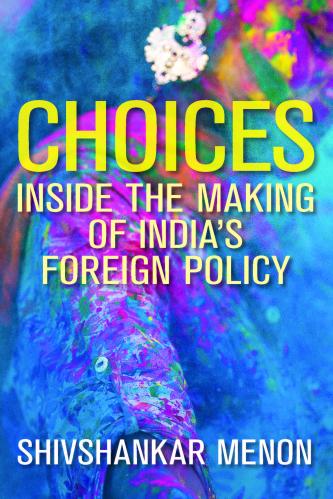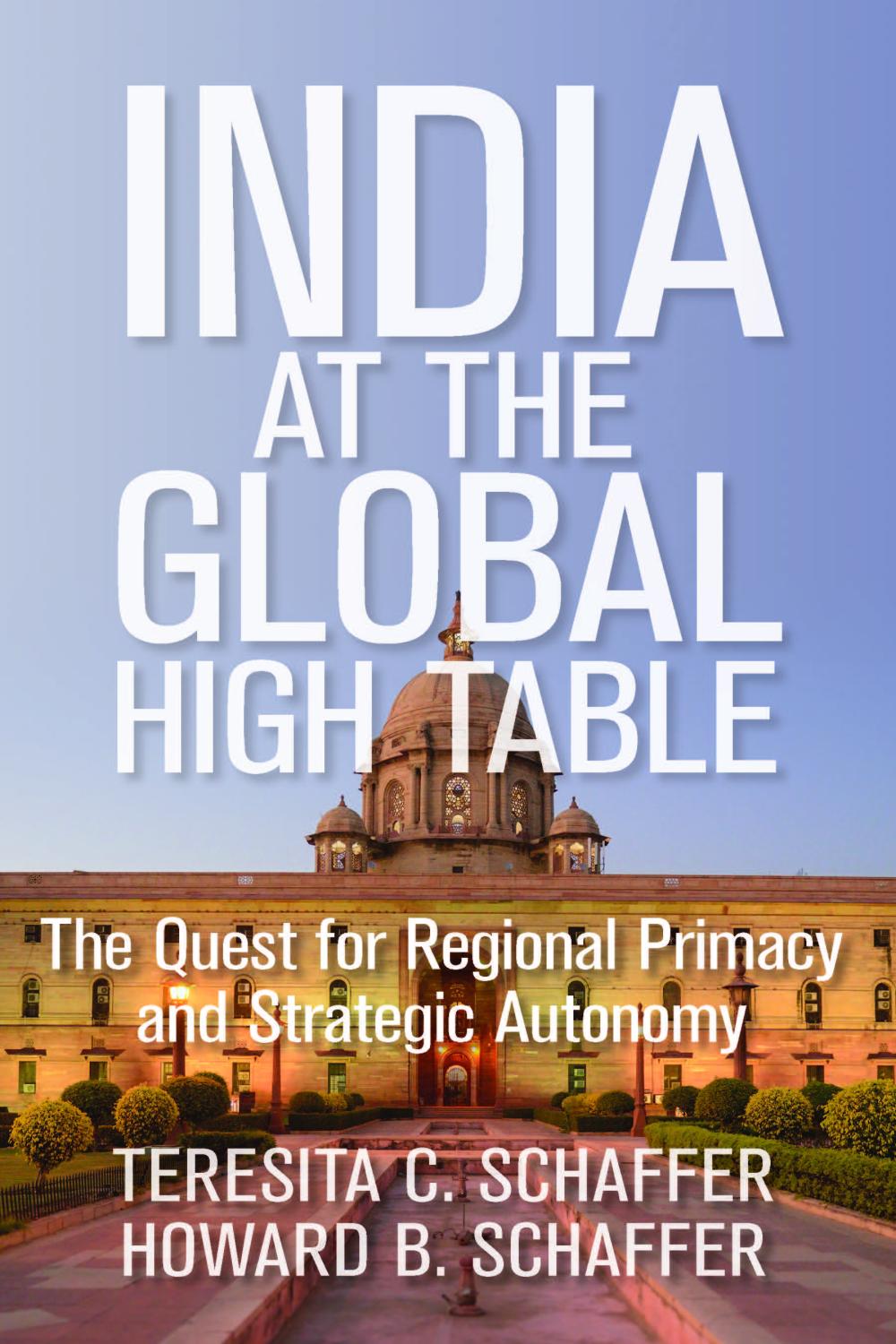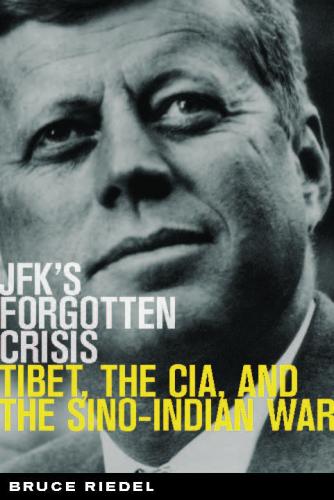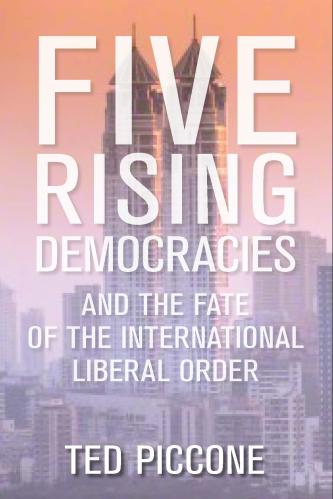


Book
Listen to the audio from the launch event on India at the Global High Table on April 20, 2016.
An integrated picture of India’s global vision, its foreign policy, and the negotiating practices that link the two.
In recent decades, India has taken on a growing global presence. India at the Global High Table is an insightful and integrated analysis of how India is managing its evolving role. Both former U.S. ambassadors to countries in South Asia, Teresita Schaffer and Howard Schaffer shine light on the country’s strategic vision and foreign policy and the negotiating behavior that links the two.
The four concepts woven together throughout the book offer an exploration of India today: its exceptionalism; its nonalignment and drive for “strategic autonomy;” its determination to maintain regional primacy; and, more recently, its surging economy. With a specific focus on India’s negotiating practices, India at the Global High Table provides a unique, comprehensive understanding of India as an emerging international power player and the choices it will face between its classic view of strategic autonomy and its desire to find partners in a fast-evolving world.
Advance Praise for India at the Global High Table
Team Schaffer in this book presents a mother-lode of invaluable insights into Indian foreign policy and the cultural drivers behind it from Ashoka to “Act East” and Nehru to Modi. It provides a clear history of modern Indian foreign affairs events and thinking coupled with concise reviews of key negotiations rarely if ever seen before, including on the China border and the US-India nuclear deal. A must read for all following South Asia and India from recognized experts with great experience in the region buttressed by careful and original research.
—Thomas R. Pickering, former Under Secretary of State and Ambassador to India, Russia and the United Nations
Howie and Tezi Schaffer have done all of us a huge favor. They have chronicled India’s rise to great power status and in doing so have defined the principles which shape that country’s approach to international affairs and its relations with United States. Carefully examining India’s history, her experience since independence, and looking at India’s approach to bilateral, multilateral and economic negotiations as well as India’s record in dealing with China and Pakistan, the Schaffers have provided unique insights into the way India defines strategic choices, develops policy and conducts diplomacy. Their book is an essential guide to modern Indian statecraft.
—Frank Wisner, Former Ambassador to India and Foreign Affairs Advisor to Squire Patton Boggs
A remarkable account of every important aspect of India’s foreign policy based, on research and active service as diplomats in South Asia and the US. The historical context and outlook for the future makes the book even more readable and interesting. A must read for diplomats and analysts.
—Naresh Chandra, Former Indian Ambassador to the United States
Related Books

Shivshankar Menon
October 18, 2016

Bruce Riedel
September 26, 2017

Ted Piccone
February 23, 2016

Stephen P. Cohen
April 12, 2016
Authors
Howard B. Schaffer served for thirty-six years in the U.S. Foreign Service, in senior positions in the U.S. embassies in India and Pakistan and in the U.S. Department of State, and as U.S. Ambassador in Bangladesh. His previous books include The Limits of Influence: America's Role in Kashmir and, co-authored with his wife, Teresita, How Pakistan Negotiates with the United States: Riding the Roller Coaster. He teaches diplomacy at Georgetown University.
Teresita C. Schaffer served for thirty years in the U.S. Foreign Service, at the U.S. embassies in India and Pakistan and in senior positions in the U.S. Department of State, and as Ambassador to Sri Lanka. Her earlier books include India and the U.S. in the 21st Century: Reinventing Partnership. As noted, she co-authored a book on Pakistan's negotiations with the United States with her husband Howard. She is a non-resident visiting fellow at Brookings Institution.